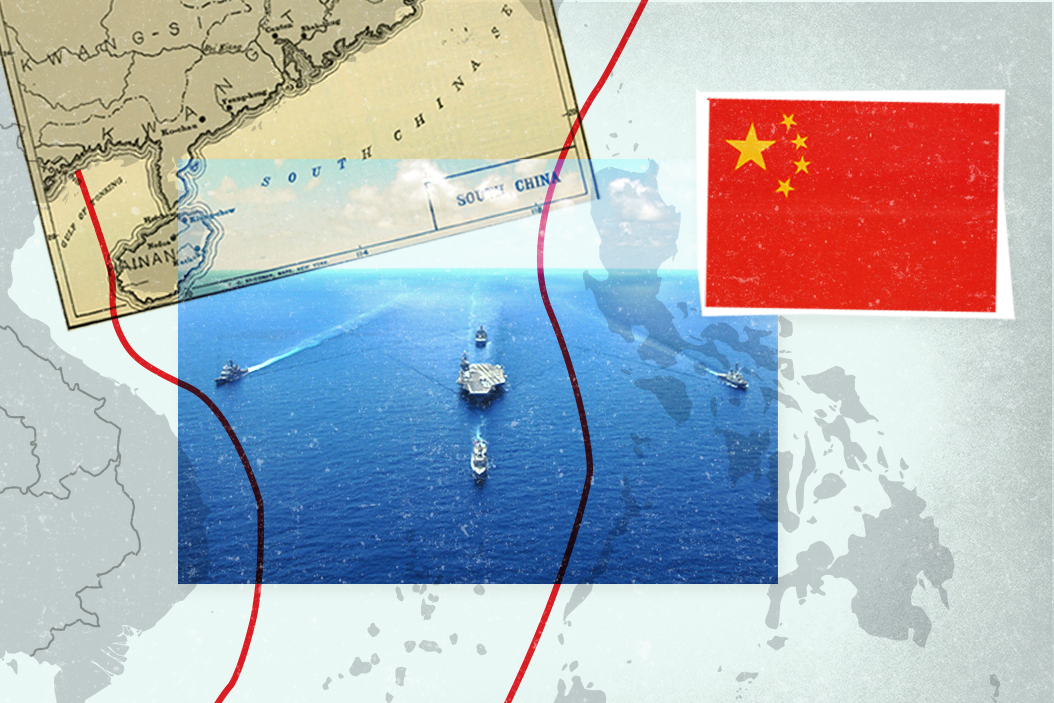For decades, Beijing has laid claim to vast swaths of the South China Sea, over the objections of its neighbors and even international courts. And until two days ago, the United States had avoided taking a strong stance on the question. Not anymore.
Secretary of State Mike Pompeo on Monday said that the US now supports a 2016 international ruling that explicitly rejects China's sovereignty claims over the sea.
Does this move matter? It's certainly an escalation for the US to reject Beijing's long-standing argument that the South China Sea is an integral part of China. From Beijing's perspective, this is meddling in China's internal affairs, notwithstanding the fact that five other countries — Brunei, Malaysia, the Philippines, Taiwan and Vietnam — also claim parts of the South China Sea as their own.
But Pompeo's statement doesn't change much. For one thing, the 2016 ruling is based on a treaty — the 1982 United Nations Convention on the Law of the Sea — that the US itself has not even ratified.
Also, the US is late to the party. Irrespective of what Washington now thinks, China has long been quietly creating facts on the sea, as it were.
Over the past four years, China has continued building new artificial islands, complete with anti-ship missiles and military airstrips, in defiance of the US Navy's freedom of navigation operations (in which it sends its own warships through these waters as a show of force).
At the same time, Chinese fishing vessels still operate in disputed areas, over the protests of Filipino and Vietnamese captains who feel chased out of their traditional fishing grounds.
Perhaps most impressively, in 2018 China signed a memorandum of understanding to jointly explore for oil and gas in disputed areas with the Philippines, precisely the country that had brought the international suit against China in the first place.
The fact that China was able to strike such a deal with a country that had sued Beijing for encroaching on its 200-nautical mile exclusive economic zone in the South China Sea is a sign that when faced with China's economic and military might, weak claimant countries often have no choice but to bite the bullet by agreeing to share what is (legally) entirely theirs. It's also a far cry from 2012, when a standoff over a fishing shoal brought China and the Philippines to the brink of war.
Why does the South China Sea matter at all? The waters have huge strategic importance. About one-third of global shipping passes through the South China Sea, which accounts for at least 12 percent of the world's fisheries. It is also believed to hold vast untapped reserves of oil and gas.
Whoever controls the South China Sea controls the main commercial and navigation gateway to East Asia — and that's why China will never let it go.
So, what happens next? For the moment, barring some kind of miscalculation among warships — which last week overlapped naval drills in the disputed area for the first time, without incidents — full-blown conflict between the US and China over the South China Sea is hard to imagine. The costs would just be extremely high for both sides.
But absent strong pushback, China will continue to slowly and steadily expand its de-facto control over these waters in ways that can permanently alter the balance of power in the region. Tough talk from Pompeo won't be enough to stop it.
More For You
For many in Iran, it’s a waiting game for how long Ayatollah Khamenei has left to live.
Most Popular
In a 30-minute call on Thursday, President Donald Trump reportedly told Ukrainian President Volodymyr Zelensky he wants to end the war with Russia as soon as possible — aiming for a deal by summer, but ideally within weeks.
Former British ambassador to the U.S. Peter Mandelson leaves his residence after he was released following his arrest by London police on Monday on suspicion of misconduct in public office, following the release of U.S. Justice Department files linked to the late financier and convicted sex offender Jeffrey Epstein, in London, Britain, February 26, 2026.
The ghost of Jeffrey Epstein continues to haunt the world.
Think you know what's going on around the world? Here's your chance to prove it.
